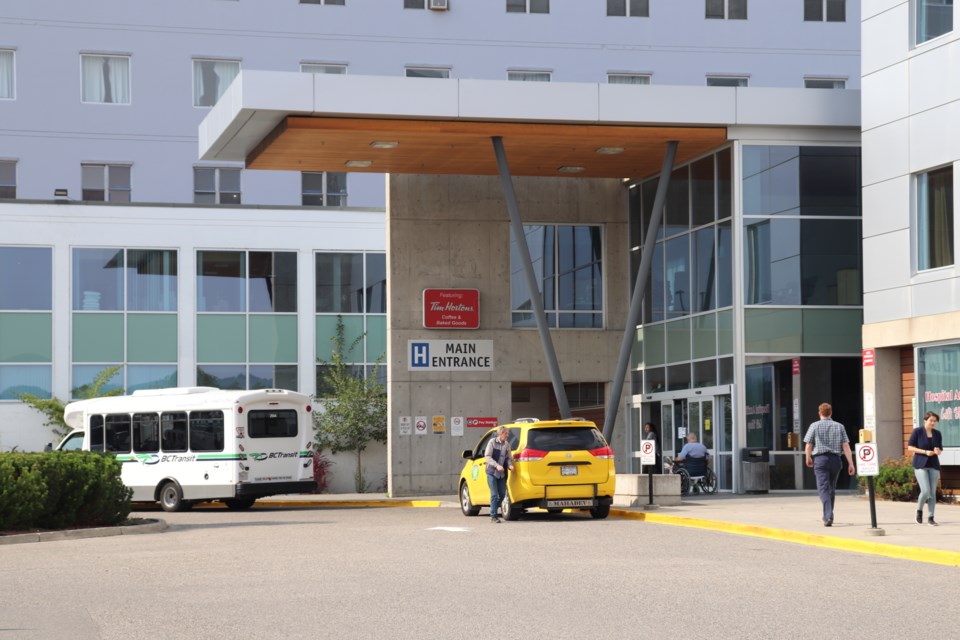As a vehicle of advocacy for seven First Nations in B.C.’s Interior, Carrier Sekani Tribal Council (CSTC) says it is encouraged by the 24 recommendations brought forward in a new report into systemic racism against Indigenous people in the province's health care system.
Mary-Ellen Turpel-Lafond, B.C’s former child and youth watchdog and a retired judge, was tasked by Health Minister Adrian Dix in June to investigate allegations that health care professionals played a “game” to guess Indigenous patients’ blood alcohol levels.
The report titled In Plain Sight: Addressing Indigenous-specific racism and discrimination in B.C. health care, was released today (Nov. 30) and makes 24 recommendations.
These include improving accountability by creating a system-wide process for monitoring reported racist incidents and improving the complaints process.
Turpel-Lafond also wants B.C.’s whistleblower legislation, the Public Interest Disclosure Act, to apply to health care workers in order to create a “speak-up culture” where people no longer fear speaking out about racism.
CSTC says it will pursue definitive solutions-based engagement and action for its members so they are afforded equitable, safe, accessible health care.
Last month, CSTC called for a task force addressing Indigenous-specific racism in northern B.C.’s health care system.
CSTC says it wants the B.C. government to establish a task team to be in place for at least 24 months to ensure all recommendations are implemented and standards of consultation with Indigenous peoples are upheld and consistent with the United Nations Declaration on the Rights of Indigenous Peoples (UNDRIP).
Within that, CSTC hopes to see the inclusion of its member nations both directly and through the Tribal Council.
“Appropriately titled, In Plain Sight describes what we already know: in its current state, there is deeply rooted bias and systemic racism at all facets of the system, this is further damaging for Indigenous people that we cannot rely on for the level of care we are entitled to,” says CSTC in a news release.
“Eye-rolling, shunning, verbal abuse, longer wait times than non-Indigenous people, denial of pain treatment, rough treatment by healthcare workers, lack of respect for cultural protocols and ceremony, and many other symptoms of the systemic racism our people face help paint a vivid picture of the lived experiences our community members.”
CSTC says solutions will also have to consider regional differences of Indigenous populations as many of its members are in remote communities already, and face further isolation and challenges to their physical and mental health due to the COVID-19 pandemic.
Turpel-Lafond’s investigation interviewed 150 “key informants” and surveyed 2,780 Indigenous people and 5,440 non-Indigenous and Indigenous health workers.
About 600 people called or emailed the tip line set up to obtain information.
The survey found 84 per cent of Indigenous respondents reported some form of discrimination in health care and 52 per cent of Indigenous health care workers reported personally experiencing racial prejudice at work — the majority in the form of discriminatory comments by colleagues.
More than one-third of non-Indigenous health care workers personally witnessed racism or discrimination directed to Indigenous patients, and 13 per cent of 531 health care workers made racist comments while responding to the survey.
The review also analyzed 430 complaints from patient care quality offices, Colleges regulating medical professionals and to the First Nations Health Authority. It also looked at 185,000 pieces of data outlining how First Nations and Métis people use the health care system and their health outcomes.
Systemic racism in the health care system takes the form of abusive interactions, denial of service, inappropriate pain management, people being ignored or shunned, medical mistakes, disdain for cultural healing.
“CSTC is grateful for the leadership of Minister of Health Adrian Dix and Mary Ellen Turpel-Lafonde in carrying out this review, and for the nearly 9,000 respondents who shared their truth around what is a very difficult, painful subject for many,” says CSTC.
“This report is a good first step, but we believe it is of no value if it does not result in decisive change within the communities affected”
- with files from Katie DeRosa ,Times Colonist



